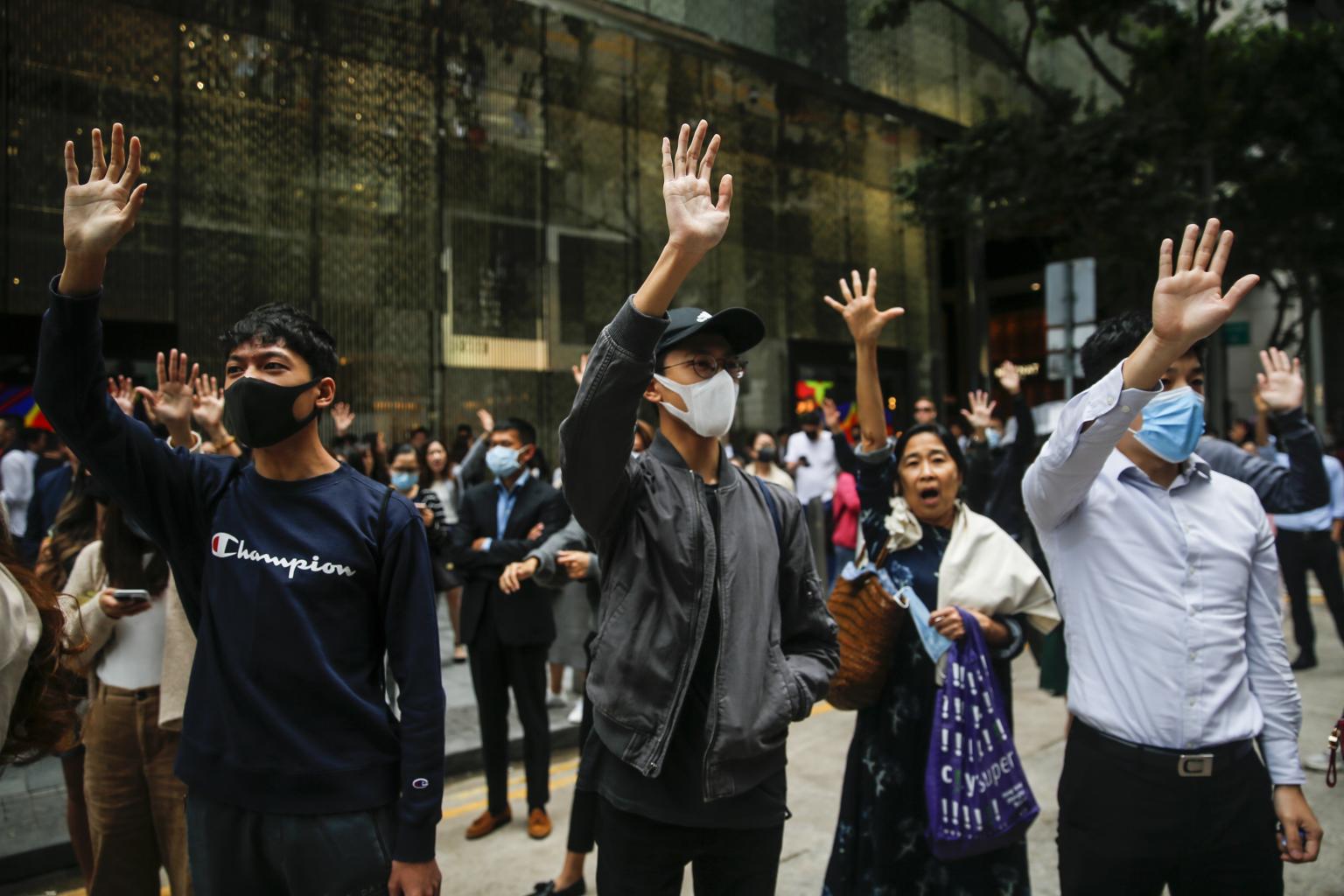US Senate unanimously passes Bill backing Hong Kong protests
Sign up now: Get insights on Asia's fast-moving developments

Anti-government protesters are seen in Hong Kong, on Nov 19, 2019. US lawmakers have voiced strong support for the demonstrators.
PHOTO: EPA-EFE
WASHINGTON - The United States Senate unanimously passed a Bill in support of pro-democracy protests in Hong Kong on Tuesday evening (Nov 19), setting up diplomatic and economic sanctions if Washington deems Beijing to have crossed the line in eroding Hong Kong's autonomy.
The Hong Kong Human Rights and Democracy Act, a version of which was unanimously passed by the House last month, may present President Donald Trump with a dilemma: He has to choose between drawing China's wrath by signing it into law and risking blowback from a remarkably bipartisan Congress by vetoing it.
The passage of the law comes amid escalating clashes between protesters and police, including an ongoing stand-off at the Hong Kong Polytechnic University where about 100 radical student protesters have been holed up for days and more than 1,100 others have been arrested.
Washington frequently criticises what it sees as Beijing's erosion of the autonomy guaranteed to Hong Kong under an international treaty. China, however, strongly condemns America's statements and moves as interference in its internal affairs that neglects the acts of violence committed by protesters.
The Bill received strong bipartisan support and was co-sponsored by half the Senate at the time of its signing. Its sponsors included Senate Majority Leader Mitch McConnell, who publicly encouraged Mr Trump "not to shy away from speaking out on Hong Kong himself" on Monday.
It will require the US Secretary of State to certify, at least annually for the next seven years, whether Hong Kong remains sufficiently autonomous, and is meant to encourage Beijing to respect Hong Kong's autonomy or risk the city losing its special status under American law.
Republican Senator Marco Rubio, one of several senators who introduced the Bill in June, said on Tuesday: "What China is really pushing for in Hong Kong is moving from one country, two systems to one country, one system - the Chinese system.
"If Hong Kong is no longer autonomous, and that's the rationale for different treatment (from China), then they should no longer receive that treatment," added the Florida senator.
The legislation also enables sanctions against officials found responsible for human rights violations in Hong Kong. And should the since-withdrawn extradition Bill that first sparked the five months of protests ultimately be passed, the President will have to develop a strategy to protect American citizens and others in Hong Kong from extradition to China.
Several senators struck a hawkish note in their speeches on the Senate floor, slamming China for authoritarian practices and even casting their opposition of the Chinese Communist Party in terms reminiscent of the Cold War.
Said Republican senator Josh Hawley of Missouri: "We are in for a long struggle with Beijing. We know what their ambitions are: to dominate Hong Kong, to dominate Taiwan, to dominate the region and ultimately to impose their will on the entire international system."
Said Senate Minority Leader Chuck Schumer: "The Senate has just sent a resounding message to the Chinese Communist Party and President Xi that the United States stands with the democratic protesters in Hong Kong."
The bipartisan legislation would safeguard Hong Kong's democracy and autonomy, and hold accountable those responsible for any human rights abuses in Hong Kong, he said.
"We have sent a message to President Xi: your suppression of freedom whether in Hong Kong, North-west China or anywhere else will not stand. You cannot be a great leader, you cannot be a great country when you oppose freedom," Mr Schumer added.
China expressed strong condemnation against and firm opposition to the passing of the Bill, a Foreign Ministry spokesman said on Wednesday.


